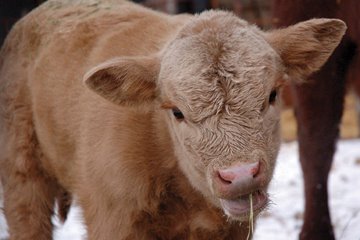by Karen Emilson
If you are feeling that our industry has been abandoned by the federal government then take heart - you’re not the only one.
And if you are concerned how things will shape up south of the border when U.S. President-elect, Barack Obama, takes office you have good reason to be.
Tony Saretsky, vice president of the Canadian Cattlemen’s Association spoke frankly in a recent interview saying that to date, the CCA has been unsuccessful at persuading the federal government to take up the Canadian cattle industry’s cause. He explained that Obama is a Democrat who promised a number of times during his election campaign to completely re-vamp NAFTA. If that happens, and the U.S. moves into a more protectionist mode, then Canadian agriculture is at risk.
“If that happens, there will be an absolute disruption not just to agriculture but to all trade,” Saretsky said. “Hopefully cooler heads will prevail and this will not come to fruition, but we do think there is a definite move to the left in some of their thinking.”
The leading candidate for Secretary of Agriculture is President of the National Farmer’s Union in the U.S. is Tom Buis. He is Obama’s advisor on agriculture and has strong views on the WTO. He has accused U.S. negotiators of using agriculture as “trade bait” for the benefit of other sectors. “The WTO free trade agenda simply pitches farmer against farmer in a race to the bottom where only commodity traders will benefit,” he was quoted in a recent interview.
How will Canadian cattle exports to the U.S. fare in future talks?
Saretsky said it’s too early to know.
“Some grassroots farmers down there believe they wills see higher prices for their product, that if they eliminate Canadian cattle from the equation they will automatically get more,” he explained. “But if that solution means the closure of plants down there, they will be bringing in more offshore meat to satisfy the American’s huge appetite for beef.”
One dim but persistent light is that there are feedlots and packing plants in the U.S., particularly in the northern tier, mid-west states, that rely heavily on live cattle from Canada.
Saretsky believes our Prime Minister needs to sit down with the President, and that the Canadian Agriculture Minister must meet with the Secretary of Agriculture in the U.S. and hammer out these trade issues.
“We’re doing everything we can every day, but we don’t have the clout to turn this around internationally,” he said. “Domestically we need our politicians to move this forward. Unless they stand up for us, we’re in trouble.”
Welcome to the Online Edition of Cattle Country!
Updated with every new issue
Past issues will be available in the archive. If you are interested in reading Late Breaking News between paper deadlines, scroll down to the bottom of the page. The most recent information will be posted first.
Past issues will be available in the archive. If you are interested in reading Late Breaking News between paper deadlines, scroll down to the bottom of the page. The most recent information will be posted first.

Thursday, December 4, 2008
Subscribe to:
Post Comments (Atom)

No comments:
Post a Comment